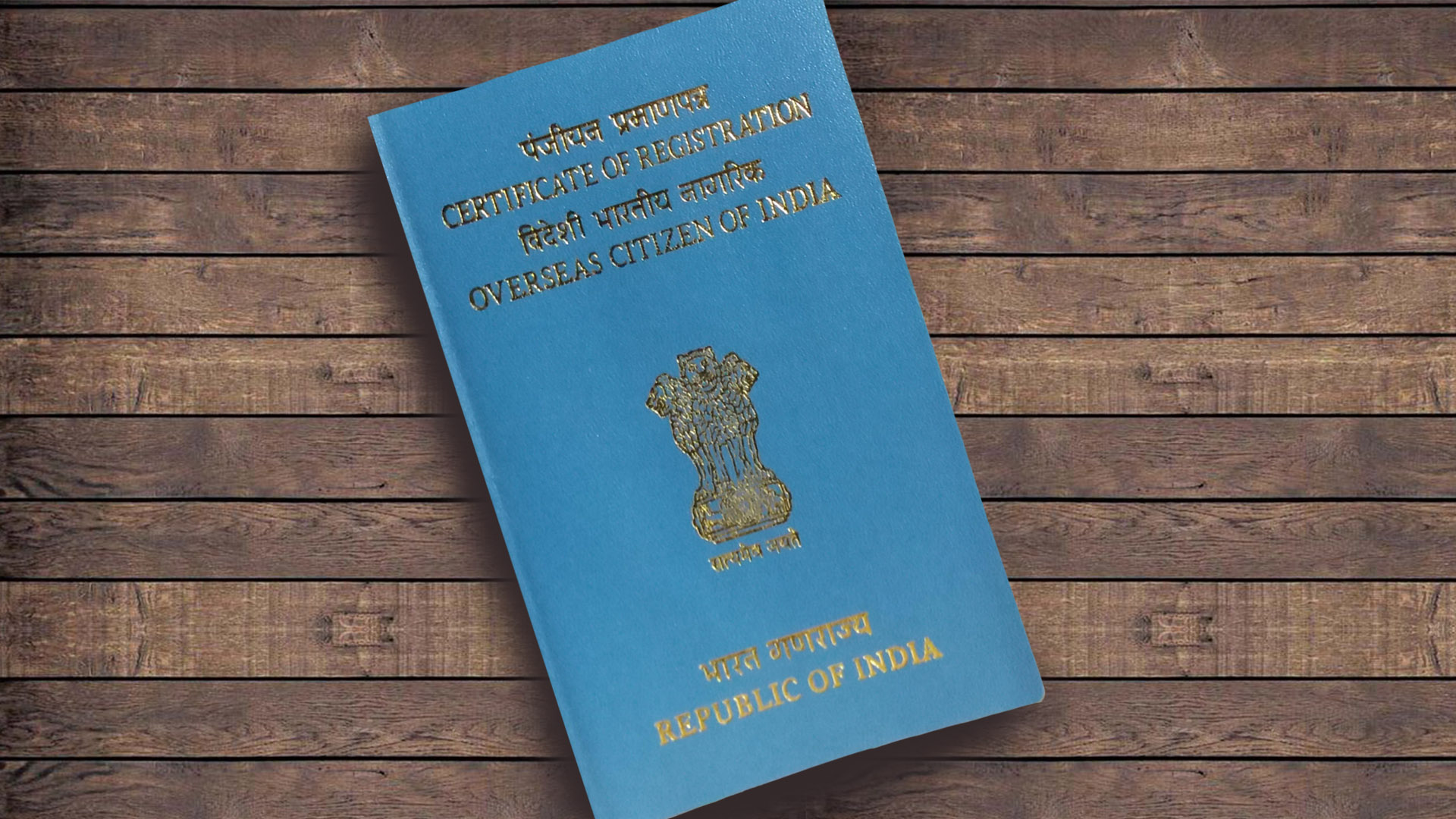Overseas Citizenship of India (OCI) was introduced in response to the demands for dual citizenship by the Indian diaspora living outside India, particularly in the developed countries. It was introduced by an amendment to the Citizenship Act, 2005 in August 2005, and was launched in the Pravasi Bhartiya Divas Convention held in Hyderabad in the year 2006.

An Overseas Citizenship of India, in simple terms, is a permit or license to get a lifelong visa to travel seamlessly across India. An Overseas Citizen of India (OCI) is a person who is a citizen of another country having an Indian origin. Further, they were citizens of India on 26th January 1950 or thereafter except who is or had been a citizen of Pakistan, Bangladesh, or such other country. Multi-purpose and life-long visa are provided to the registered OCI’s for visiting India and are also exempted from registration with FRRO or FRO for any length of stay in India.
One can become a holder of OCI only if they fall under any of the conditions mentioned below
- Formerly resigned Indian Citizenship.
- Parents, grandparents or great grandparents were once the citizen of India.
- Married to an existing OCI or India citizen and the wedding is at least 2 years old.
- Also according to section 7A of the Citizenship Act, 1955, it is said that, a person, before applying for this card must meet the following criteria:
- The person was a citizen of India on 26th January 1950 or after.
- The person belonged to the territory that became a part of India after 15th August 1947.
- Should be eligible for citizenship of India at the time of commencement of the constitution.
- The person is a child/ grandchild/ or great grandchild of such a citizen
- Is a minor whose one parent or both are Indian Citizens.
- The Person is a spouse of foreign origin of any citizen of India or an OCI card holder.
- The only exception to this is that a person who has served the military cannot be eligible for the scheme.
Benefits to OCI card holders
- It provides multipurpose lifelong visas, with multiple entries to India.
- They have the privilege to stay in India without reporting to the Police authorities.
- They also have the benefit in terms of having parity with NRI’s in economic, financial, and educational spheres except regarding the property rights.
- Again, they have parity with NRI’s in the inter-country adoption of Indian Children.
- Also, there is parity in matters of tariffs in domestic airfares.
- The card holders are charged the same fee as Indians to visit National Parks and wildlife sanctuaries in India.
- Also, they enjoy parity with NRI’s in respect of pursuing a profession in the field of doctors, nurses, dentists, pharmacists, advocates, architects, chartered accountants, and certain tests.
Disadvantages
- The registered Overseas Citizens of India are not entitled to several rights that are conferred on a citizen of India.
- Right to equality of opportunity under article 16 of the Indian Constitution regarding public employment.
- Right for election as President and Vice-President under article 58 and Article 66 of the Indian Constitution, respectively.
- They are not entitled to the rights under article 124 and article 217 of the Constitution which relate to the judges of the Supreme Court and High Court.
- Right to register as a voter under section 16 of the Representation of the People Act, 1950 (43 of 1950).
- Rights about the eligibility for being a member of the State Council/Legislative Assembly/Legislative Council.
- For an appointment to the posts of Public Services and Union Affairs of any State.
- Eligibility to be a member of the Lok Sabha or the Rajya Sabha under Section 3 and 4 of the Representation of The People Act, 1951.
- Eligibility to be a member of the Legislative Assembly or the Legislative Council of a State under Section 5, 5A and 6 of the Representation of The People Act, 1951.
- Appointment to the public service posts in the Union or State, except if there is an order by the Central Govt. to such appointment.
Therefore, OCI’s enjoy a wide variety of rights under the Citizenship Act, but the act does not confer a majority political rights on them. It also prevents them from buying agricultural and plantation properties. But it has to be noted that they enjoy some rights that the non-resident Indians and Indian citizens enjoy.
Libertatem.in is now on Telegram. Follow us for regular legal updates and judgments from the court. Follow us on Google News, Instagram, LinkedIn, Facebook & Twitter. You can also subscribe to our Weekly Email Updates. You can also contribute stories like this and help us spread awareness for a better society. Submit Your Post Now.

